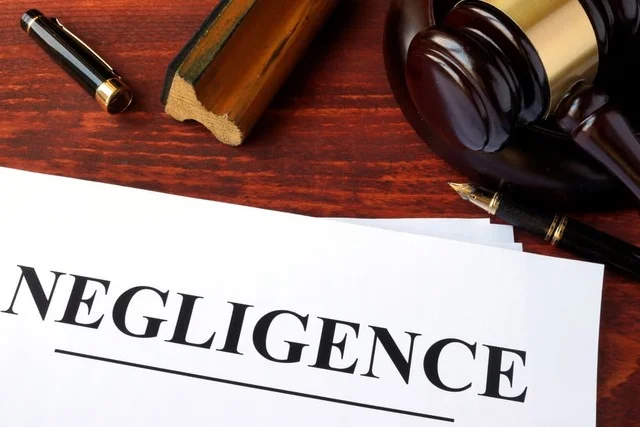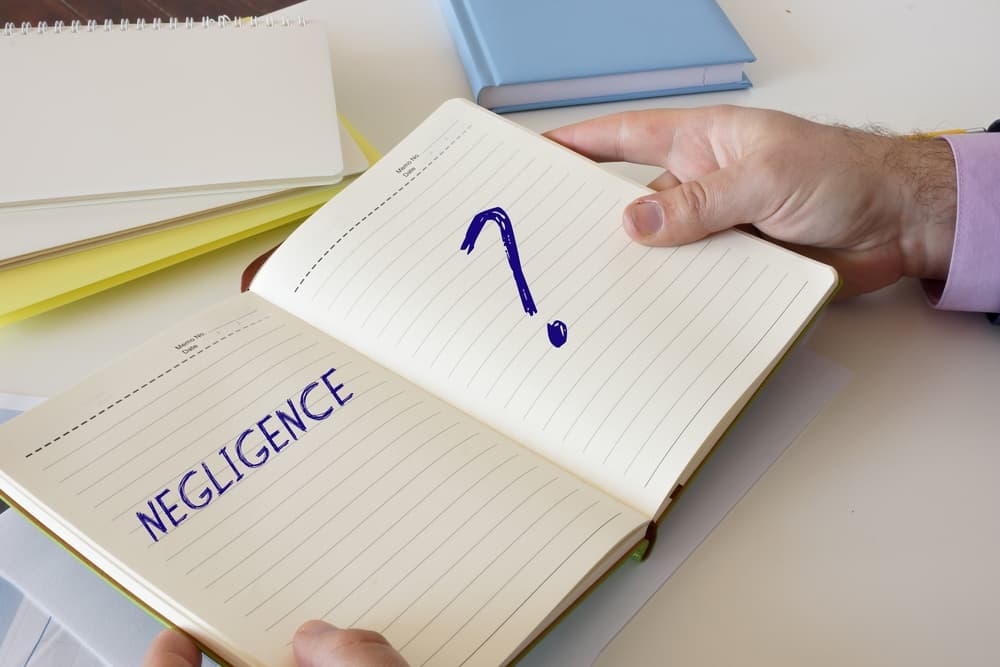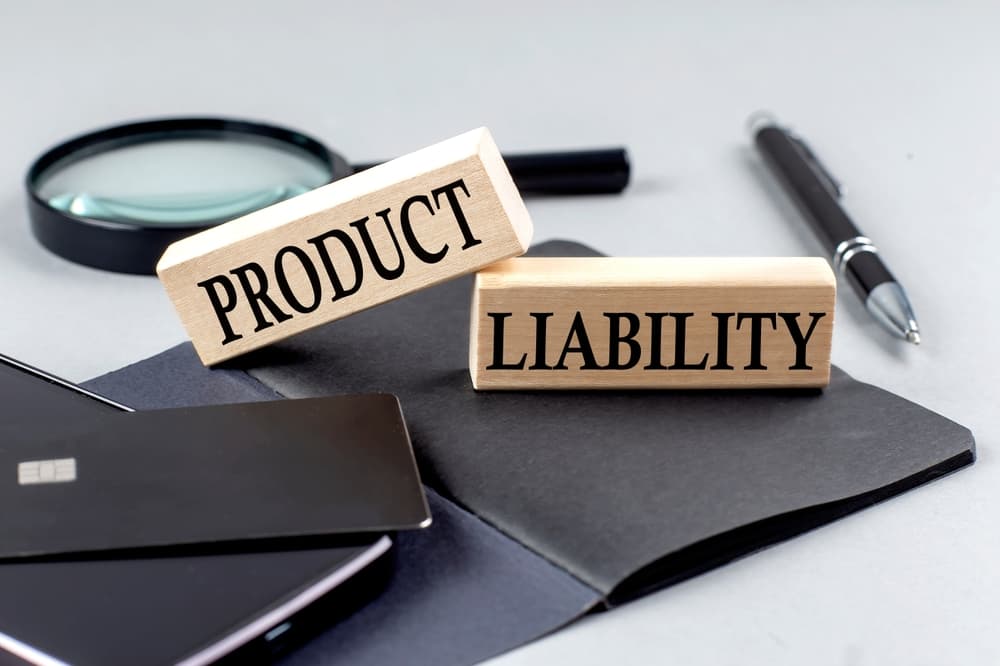
What Missouri Law Says About Preventable Harm
Negligence is a common legal ground for filing a civil lawsuit. It applies to situations where a person, business, or institution fails to meet a duty of care, resulting in preventable harm. If you were injured, suffered financial loss, or lost a loved one due to someone else’s actions or inaction, you may wonder whether negligence applies—and whether you have the right to sue.
This article by Gray Ritter Graham explains how Missouri law defines negligence, when you can sue for negligence, and how legal claims vary across different cases. Whether your situation involves a car crash, medical error, or a dangerous product, a negligence claim may provide a legal path to recovery.
If you are victim of medical negligence reach out our medical malpractice attorneys to pursue rightful compensation you deserve.
What Is Legal Negligence? A Simple Explanation for Non-Lawyers
 Negligence occurs when one party owes another a legal duty of care and fails to fulfill that duty, resulting in harm. Missouri law recognizes four elements that must be present to succeed in a negligence lawsuit:
Negligence occurs when one party owes another a legal duty of care and fails to fulfill that duty, resulting in harm. Missouri law recognizes four elements that must be present to succeed in a negligence lawsuit:
- Duty of Care – The defendant was legally obligated to act reasonably, safely, or responsibly.
- Breach of Duty – That duty was not met. The defendant acted carelessly or failed to act when they were required to.
- Causation – The breach of duty directly led to the harm suffered by the plaintiff.
- Damages – The plaintiff suffered a measurable loss, such as physical injury, financial loss, or emotional harm.
This framework applies to a wide range of circumstances. For example:
- A driver who runs a red light and causes an accident has likely breached a legal duty.
- A business that leaves a wet floor unmarked may be responsible if a customer slips and is injured.
- A manufacturer that distributes a defective product may be liable if the product causes injury or death.
In each case, the plaintiff must show that the defendant did something wrong and that the wrongful act resulted in specific harm. The court then evaluates whether the conduct met Missouri’s standards for reasonable care under the circumstances.
Can I Sue for Negligence in a Personal Injury Case?
Most personal injury lawsuits are built around the legal theory of negligence. In Missouri, this includes car accidents, pedestrian injuries, slip and fall incidents, and other injuries caused by someone else’s carelessness.
For example, if a distracted driver hits a motorcyclist, that driver may be liable for failing to maintain proper awareness and control of their vehicle. If a grocery store fails to clean up a spilled liquid promptly and a customer falls, suffering a head injury, the store may be liable for breaching its duty of care to patrons.
Missouri follows a pure comparative fault rule under Section 537.765 of the Revised Statutes of Missouri.
This means that even if the injured person is partially at fault, they may still recover damages, although the total award will be reduced proportionally to their degree of responsibility.
For example, if a jury finds that a plaintiff was 20 percent responsible for an accident, the final award would be reduced by 20 percent.
Damages available in a personal injury negligence case may include:
- Medical expenses
- Lost wages or earning capacity
- Pain and suffering
- Loss of enjoyment of life
- Future treatment or rehabilitation costs
Legal claims must be filed within five years from the date of the injury under Missouri’s general personal injury statute of limitations (RSMo § 516.120). However, having your accident reviewed by an attorney who handles negligence cases is recommended, as evidence can degrade over time, and early steps may preserve stronger claims.
Medical Negligence: When Can You Hold Healthcare Providers Accountable?
 Negligence also applies to healthcare settings. Medical malpractice occurs when a healthcare provider’s actions deviate from the standard of care expected in their field, resulting in harm to the patient.
Negligence also applies to healthcare settings. Medical malpractice occurs when a healthcare provider’s actions deviate from the standard of care expected in their field, resulting in harm to the patient.
Examples of medical negligence include:
- Misdiagnosis or delayed diagnosis
- Surgical errors
- Medication or dosage mistakes
- Improper monitoring or treatment
- Birth injuries caused by obstetric errors
- Failure to obtain informed consent
In Missouri, plaintiffs pursuing medical negligence claims must comply with specific procedural requirements. Under RSMo § 516.105, the statute of limitations is two years from the date of the alleged error in most cases.
Additionally, an affidavit of merit must be filed within 90 days of filing the lawsuit. This document must be signed by a qualified healthcare provider, who will affirm that the claim has merit.
Unlike general negligence cases, medical malpractice suits often involve highly technical questions. Proving a deviation from medical standards requires expert opinions, detailed medical records, and thorough analysis.
However, these cases are not about punishing providers for bad outcomes. The legal standard focuses on whether a competent provider would have acted differently under the same conditions.
Damages in a medical negligence case may include medical costs, past and future pain and suffering, loss of future earnings, and, in tragic cases, wrongful death damages when the patient does not survive.
Negligence in Wrongful Death Claims: Holding Parties Accountable After a Loss
When someone dies due to another party’s negligent act, Missouri law allows family members to pursue a wrongful death claim under RSMo § 537.080. This legal path is intended to recognize both the loss to the family and the need for accountability.
Wrongful death claims based on negligence can arise from:
- Fatal motor vehicle collisions
- Surgical or hospital-related negligence
- Defective medical devices or consumer products
- Unsafe premises or environmental hazards
Missouri prioritizes certain family members for filing wrongful death claims. The first tier includes spouses, children, and parents. Siblings or a court-appointed personal representative may bring the claim if no one is available.
Compensation may include:
- Funeral and burial expenses
- Medical expenses incurred before death
- Loss of companionship, support, and services
- Lost future income that the deceased would have earned
The statute of limitations for wrongful death in Missouri is three years from the date of death. These cases often involve high damages, emotional stakes, and multiple defendants. Early investigation helps ensure that records, witnesses, and cause-of-death evaluations are preserved and available for review.
Product Liability and Negligence: When Manufacturers Get It Wrong
 Consumers can expect the products they use to be safe as intended. A legal claim may arise under negligence and strict liability theories when a product causes injury due to a design flaw, manufacturing error, or inadequate warning.
Consumers can expect the products they use to be safe as intended. A legal claim may arise under negligence and strict liability theories when a product causes injury due to a design flaw, manufacturing error, or inadequate warning.
Negligence in product liability may involve:
- Failing to test a product before release
- Using defective components or materials
- Ignoring quality control issues during manufacturing
- Disregarding reports of harm from consumers
- Inadequate instructions or missing warnings about foreseeable risks
Common product-related cases involve medical devices, automobiles, machinery, children’s toys, and pharmaceuticals. For instance, a poorly designed seatbelt or a drug with undisclosed side effects could give rise to a claim for negligence.
Missouri allows injured consumers to seek compensation for physical harm, lost income, pain, and future medical costs. The statute of limitations for most product liability claims is five years from the date of injury (RSMo § 516.120), although some exceptions apply if the injury was not immediately apparent.
Documenting the product's condition, purchase history, and use helps support a claim and may prevent the loss of evidence.
Commercial and Business Negligence: When Financial Harm Results From Careless Conduct
Negligence does not always result in physical injury. In commercial litigation, negligence may apply when a business or individual causes financial harm by failing to exercise reasonable care in a commercial relationship or transaction.
Examples include:
- A financial advisor giving inaccurate or misleading information
- An auditor failing to detect accounting errors due to a lack of due diligence
- A vendor breaching safety protocols and causing loss to a business partner
- Negligent hiring or supervision in a commercial setting leading to third-party harm
In Missouri, courts may recognize a claim for economic loss if a duty to act with care arises from the nature of the relationship, contract, or commercial context. However, claims that only involve pure economic loss without accompanying injury or property damage are evaluated differently and may be limited under the economic loss doctrine.
Commercial negligence claims often require detailed records, business contracts, and financial analysis to establish causation and measure damages. These cases may involve complex factual scenarios, but they offer an avenue to recover losses resulting from carelessness that disrupted a business or financial arrangement.
What Evidence Strengthens a Negligence Claim?
Evidence is the foundation of every negligence lawsuit. While each case is unique, successful claims typically rely on records and documentation that establish how the incident occurred, the defendant's role in the conduct, and the full extent of the harm.
Supporting materials may include:
- Photographs or video recordings of the scene, property damage, or visible injuries
- Witness statements or third-party reports from those who observed the event
- Accident or incident reports, such as police documentation or internal business records
- Medical records, including emergency room visits, diagnostic testing, and physician evaluations
- Employment documents, such as pay stubs or HR letters verifying lost income or time off
- Correspondence with insurers, which may reveal early denials or lowball settlement offers
Preserving physical evidence, securing written communications, and creating a detailed timeline strengthen your ability to establish what happened and why the defendant may be legally responsible.
Some negligence cases involve more than one party that is responsible. A driver, an employer, a property owner, or a product manufacturer may each be involved in causing harm.
Identifying all liable entities can improve the chances of a full recovery. A lawyer can evaluate whether third-party liability applies and whether claims should be filed separately or as part of a broader legal strategy.
When Should You Talk to a Lawyer About Negligence?
 Not every adverse event gives rise to a legal claim, but many individuals wait too long to determine if they have a valid case. Speaking with an attorney early allows for a thorough review of the facts and a clearer picture of whether the legal standard for negligence is met.
Not every adverse event gives rise to a legal claim, but many individuals wait too long to determine if they have a valid case. Speaking with an attorney early allows for a thorough review of the facts and a clearer picture of whether the legal standard for negligence is met.
Consider contacting legal counsel if:
- You were seriously injured and believe someone else contributed to the incident
- A loved one died under circumstances that raise questions about another party’s actions
- A business or professional failed to meet reasonable expectations or legal duties
- An insurance company has denied a claim, delayed a response, or offered a low settlement
- You are uncertain whether your experience qualifies as legally actionable
In Missouri, most negligence claims must be filed within five years, but shorter deadlines may apply in medical or wrongful death cases. Early consultation helps preserve access to records, identify witnesses, and avoid procedural issues that could limit recovery.
Most attorneys offer free consultations and contingency fee arrangements, which means legal representation is available without up-front costs. These meetings are confidential, and there is no obligation to pursue legal action unless the client decides to do so.
Every person’s experience with negligence is different. Some clients are unsure whether what happened even qualifies as a legal wrong.
Others are frustrated by delays, denials, or silence from insurance companies. No matter where you are in the process, a conversation with a legal advocate can provide the clarity and direction you need to make informed choices.
Legal Accountability Starts With a Conversation
Negligence is more than a legal concept. It reflects the harm caused when someone fails to act with the care required by law. Filing a lawsuit is not about blaming for its own sake—it is a way to hold parties accountable, pursue compensation for real losses, and prevent similar incidents from affecting others.
Whether you were injured in a car accident, lost a family member due to medical negligence, or suffered financial harm from careless conduct, you may have options under Missouri law. A legal review can clarify whether negligence applies, what damages may be recoverable, and how to protect your rights moving forward.
At St. Louis personal injury law firm, our attorneys carefully evaluate each situation, paying attention to both legal standards and the personal impact of the harm. We offer private consultations at no cost and work closely with clients to ensure that every decision reflects their goals and values.
For your case review, contact us at (314) 241-5620 or submit a request through our secure consultation form. You deserve answers—and the opportunity to be heard.

 RSS Feed
RSS Feed